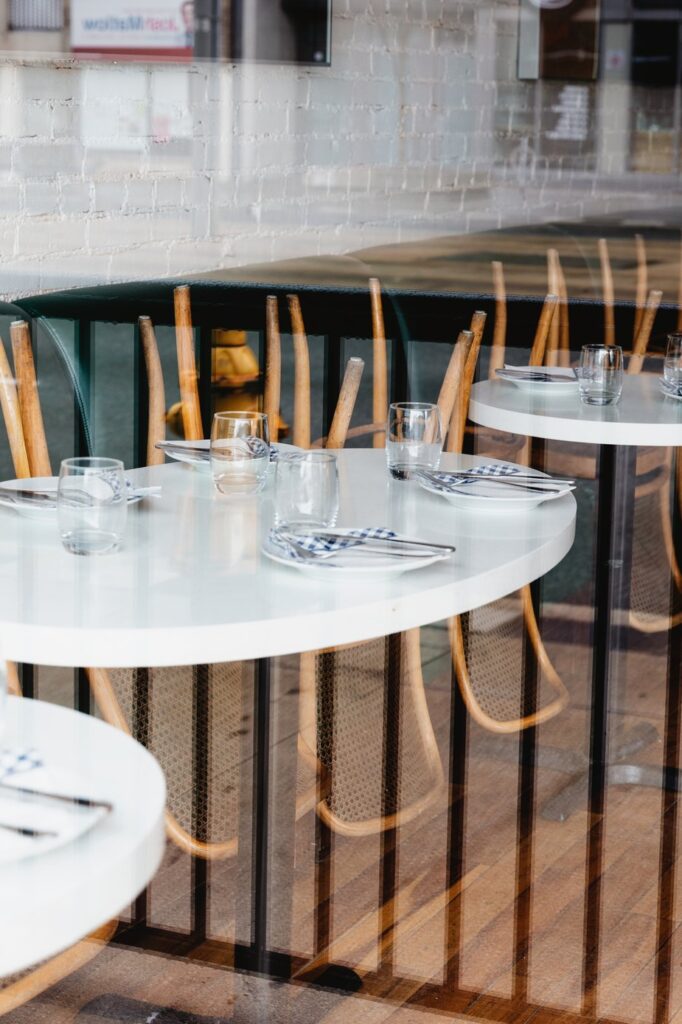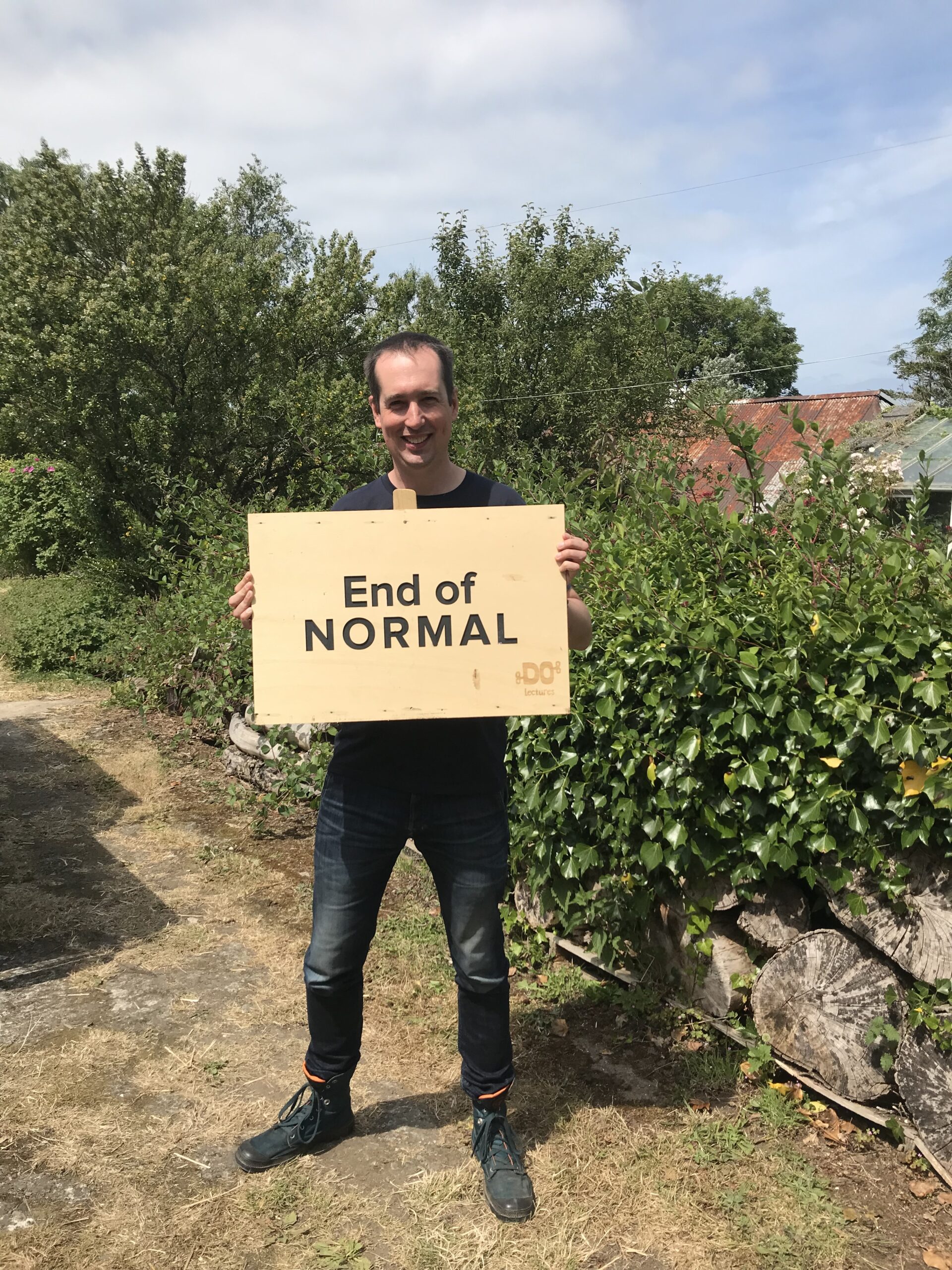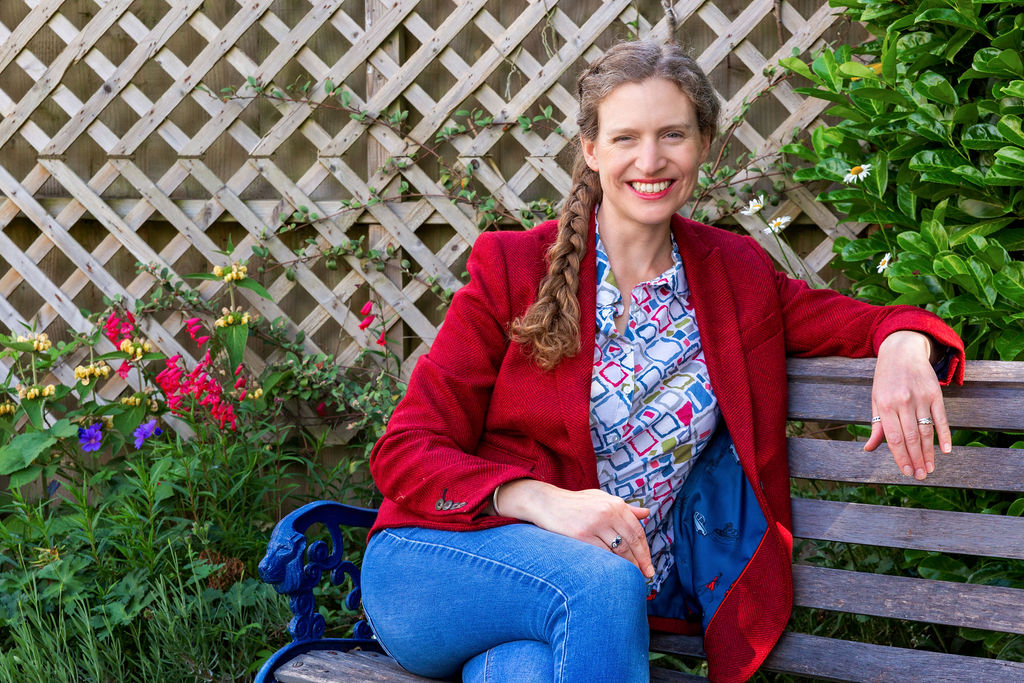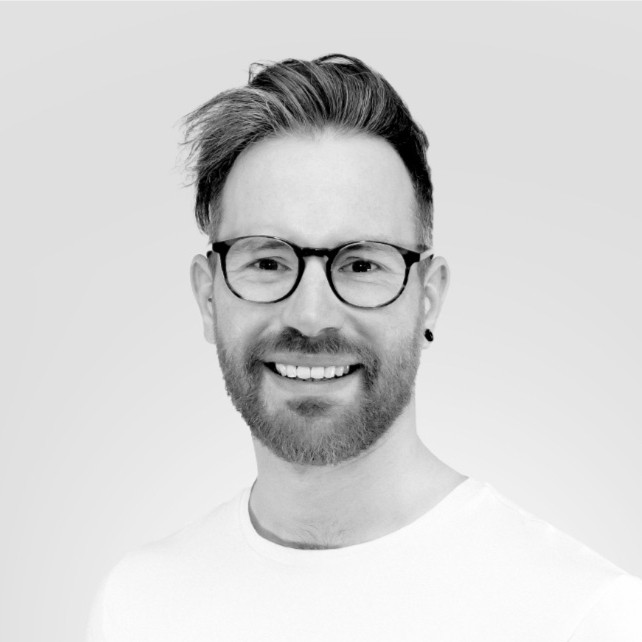
It didn’t matter what kind of business you were: lockdown affected all of us. Whether you were newly established or got a few years under your belt, there were impacts and changes.
All the small business owners I spoke to had different experiences of the lockdown (click here if you missed the first three). These three small business owners were no different. Nick, Helen and Adam represent both newer and more established businesses, but across very different industries. Here’s their stories of the last two years since we first met.
Nick Skelton – Independent Strategic Consultant

Nick is the only one in the group, as far as I know, with plans for his own beverage production. Looking forward to that coming to fruition! Until then, Nick works to help organisations adopt digital-first working practices. Which, with hindsight, seems like a very forward-looking niche to have picked! As you can imagine, it’s not exactly been a quiet couple of years.
How long had you been running your own business/been self-employed when we met in 2019?
Only a few months.
It was just the one client at that stage. I was introducing new, digital-first ways of working: designing intranets, introducing Microsoft Teams, so people could work any place, any time, any device.
I had no idea that we would soon be in lockdown and everyone would need this sort of help. I have a few more clients now!
What do you remember most about that day?
I remember arriving late, creeping in just as everyone else had finished introducing themselves, not knowing quite what was going on. But I quickly realised this was a very friendly group.
At the end of the day, I suggested we went out as a group for a quick drink afterwards, and most of us did exactly that. We even met up in London for a walk and a chat a few months later.
This social side is what stuck with me. There’s something about going freelance that makes you realise that no one is an island. Your network of people support you, advise you, refer work to you. I’ve learnt from those more experienced, and I’ve helped others just starting out now.
Were there any things that you particularly took out of Ian’s session that you still think about or do today?
I remember a discussion about the names of companies and people. Ian suggested that maybe a company name isn’t so important. For the sort of strategic consultancy I do, people hire a person, not a company. Your own personal brand and reputation are what matters.
This thought from Ian, and my experience over the last couple of years, helps give me confidence in myself. Most of my freelance work has come from people recommending me to others.
So, we’ve been through 2 years like none of us could have imagined. What’s the biggest challenges you’ve had to overcome?
When I went freelance I expected that the boundaries between work and life would become more blurred more. There are pros and cons to this. But with lockdown, they blurred even more. When you can’t get out, and even social opportunities are on Zoom, I found it difficult to switch off. I’ve got some way still to go before I can work out a good balance.
Have you changed anything about how you work or what you do as a result of the pandemic?
Rather than travelling to clients, I mainly work from home in an old shed office. I expect a lot of that will stick, even as opportunities to travel open up. Working remotely has become acceptable, but some things are definitely easier in person. I’ve discovered how to run group workshops remotely, but I would certainly rather do them sitting in a circle, with a flip pad and a large collection of Post-It notes.
Amid all the terrible news of the pandemic, were there any positives for you, at work or in your home life? Are you the person that did learn a new language or renovated a house?
Two years ago my husband Jon and I moved into an old bungalow with an attached smallholding, both of which needed a lot of work. During lockdown, we moved into a caravan in the garden, while builders took the house apart and renovated it. We have worked on the smallholding ourselves, bringing it back to life and planting a cider apple orchard. Our first planting of trees is doing very well.
I streamed social events from the back garden including a Zoom bonfire night and mini-concert under the apple tree on Facebook
If you could tell yourself, or the rest of us, one thing on that day two years ago on how to get through the next two years, what would it be?
Friends, family and neighbours are so important. Exchanging homegrown veg over the hedge is an important pleasure in life.
Tell us the book or something you watched that got you through rubbish days?
As a freelance consultant, people give you tricky problems to solve, the ones they don’t want to grapple themselves. I enjoy the tricky problems, as the only way to solve them is to learn – interviewing a leading researcher in the field, or reading a great reference book. So I’ve read more books in the last two years than I had in a long while.
But what got me through rubbish days are good evenings. Cuddled up watching The Expanse on Netflix, or out on the smallholding with six friends, cooking sausages on a campfire.
What’s the one word or phrase you never want to hear again when we’re through all this?
“You’re on mute!”
Think we’re all with Nick on that one!
Helen Waddington – Director (and Chief Cake Eater) HKW Risk Management

Helen’s business is in risk management, so I often see photos of her in a hard hat and high-vis vest. She’s also probably as cake and dessert obsessed as I am.
How long had you been running your own business/been self-employed when we met in 2019?
3 years, I set up HKW Risk Management in June 2016
What do you remember most about that day?
The energy in the room! The fascinating range of people from all walks of life, all stages of their careers and working in a huge variety of industries – but all with an instant connection of being on the same (freelance) team. And that we didn’t want the course to end so we went to the pub to continue the conversation.
Were there any things that you particularly took out of Ian’s session that you still think about or do today?
My Manifesto is on my office inspiration wall, as is the ‘How to make decisions’ slide and the ‘Get comfortable with uncertainty’ slide. Also keeping a record of “good times”, though I’ve let this slip recently so need to re-start that.
I’m getting better at valuing my time – I’ve put all my prices up and (very) occasionally I’ve actually said no to something. I’m getting better at being a good boss to myself – which essentially means I’ve accepted I’m a workaholic and now manage it much better.
So, we’ve been through 2 years like none of us could have imagined. What’s the biggest challenges you’ve had to overcome?
The initial cancellation of everything!
That first few weeks in March were horrendous as all my clients cancelled everything in what seemed like a sort of collective panic. I remember the world being a very scary place with empty shelves and feeling like there was danger outside the door.
Fortunately, the majority of clients came back and re-booked. Then the challenge was controlling my terrible time management. I was working 16 hour days at one point. The swimming pools were shut so I couldn’t do my main calming down activity.
Have you changed anything about how you work or what you do as a result of the pandemic?
Zoom!
I was very surprised to discover that I could carry out audits via Zoom with existing clients who I know well and have a good relationship with. I was even more surprised to discover I could build successful relationships with new clients over Zoom.
Zoom worked better for service-based industries and quality management audits. I wasn’t comfortable carrying out health and safety remotely. It’s very difficult to carry out a “suitable and sufficient” risk assessment via WhatsApp video.
Although I’ve now returned to client’s sites, I’m still using Zoom/Teams to carry out work remotely wherever I can as it reduces travel time and the associated carbon footprint.
Amid all the terrible news of the pandemic, were there any positives for you, at work or in your home life? Are you the person that did learn a new language or renovated a house?
No!! I am certainly not the person learning a new language. I was one of the people looking at everybody else doing fascinating CPD courses and online networking while wondering how the hell they had time!
We had a 4-year-old and a 6-year-old at home who we were trying to “homeschool”. I was working crazy hours while my furloughed husband did everything else. It was total carnage for months.
On the home life positive side, we discovered loads of footpaths and walks around our local area. Prior to the pandemic, we would have always driven somewhere more interesting but now that wasn’t an option we found some beautiful places on our doorstep.
On the work-life positive side, I was in the fortunate position that a lot of my clients did extremely well during the pandemic. I won several new contracts and had the most successful year ever so far and was able to make the largest charity donation the business has been able to make. Perhaps less successful though in terms of how exhausted and stressed out I was by Christmas 2020!
If you could tell yourself, or the rest of us, one thing on that day two years ago on how to get through the next two years, what would it be?
There will always be work.
Build a strong network of like-minded people – I set up a Zoom networking group for other people in compliance roles and businesses. This meant we could all talk about ISO standards/legislation/risk and all understand each other without having to explain. The group is still going strong and we now alternate between Zoom and lunch (with pudding/cake – obviously!)
Tell us the book or something you watched that got you through rubbish days?
Staged – absolutely brilliant.
What’s the one word or phrase you never want to hear again when we’re through all this?
“Unprecedented” and “due to the pandemic….”
Adam Jennings – Design Director, Contour Creative Studio

If Nick was our social secretary on the day, then I think Ian must have been very happy to have Adam on hand as he became head of tech support. Think we’ve all been there: ready to go and some part of the technology goes a bit awry. That’s not Adam’s day to day world though. The studio solves the problem of creating authentic branding and identity for brands looking for something distinctive.
How long had you been running your own business/being self-employed when we met in 2019?
2.5 years full time but freelancing to build a client base for 3 years before that.
What do you remember most about that day?
A great group of people who are all passionate about growing and improving – sharing with others is very inspiring. Lots of people were looking for direction and I’m intrigued to see if they found it.
Were there any things that you particularly took out of Ian’s session that you still think about or do today?
The brand manifesto resonated with me and I brought that through to my business. Someone in the group shared a story that said if you’re going to be your own boss, choose to be a good boss. That’s the thing that’s stayed with me the most.
So, we’ve been through 2 years like none of us could have imagined. What’s the biggest challenges you’ve had to overcome?
Balance.
Lockdown presented lots of new work as I helped people to grow and launch projects, which is lovely and a great problem to have. Because of a fear of no money and no work, I worked too hard and didn’t set boundaries. I found myself repeatedly burnt out.
Have you changed anything about how you work or what you do as a result of the pandemic?
I opened my own studio space with a photography area and hotdesking, as well as room for my laser cutter and screen printing. Not only has this given me an outlet to keep work at work but it’s also providing opportunities for networking and collaboration which I’ve been craving after working at home so much.
Amid all the terrible news of the pandemic, were there any positives for you, at work or in your home life? Are you the person that did learn a new language or renovated a house?
I got a few jobs completed at home but it showed me that in challenging times I can succeed and grow. Opening my studio has been a dream for a long time.
If you could tell yourself, or the rest of us, one thing on that day two years ago on how to get through the next two years, what would it be?
Focus on your happiness and enjoy the time with your family. The first lockdown was a lovely opportunity to breathe, spend time with my wife and change my pace of life. I don’t know if I’ll be able to consciously allow myself that time and space again.
Tell us the book or something you watched that got you through rubbish days?
The US Office was particularly good at breaking the misery and pessimism of the news each day. I often return to Paul Arden’s “Whatever You Think, Think the Opposite” as a book to help me rethink and reframe problems.
What’s the one word or phrase you never want to hear again when we’re through all this?
Daily figures – no–one needs bad news on repeat.
I think many of us can relate to Adam’s fear of there not being any work. I’m with Helen in that I had to hang onto the phrase “get comfortable with the uncertainty”. It’s been a mantra for being freelance since that day, and one to keep remembering. It’s tricky when you’re facing everyone stopping everything, and even harder when you know you shouldn’t take on anything else.
I’m not perfect on that one. Keeping on trying.
What’s the purpose of telling these stories?
You might be wondering why as a copywriter and content writer I’m telling you these stories. I’m not a small business coach, other than in how to find words with bite to attract attention to your brand.
In the next post I’m going to tell you why stories like these are valuable to your business, an asset to bank for future use.